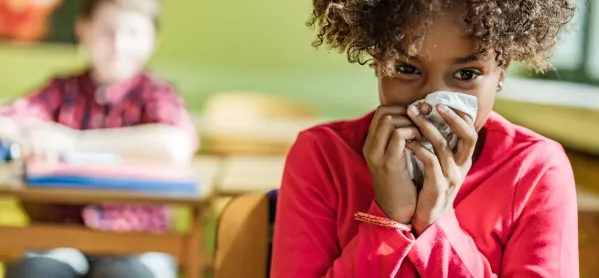Current plans to return children to school could risk spreading the coronavirus, the Department for Education’s top scientific adviser has admitted.
Addressing the parliamentary science and technology committee this afternoon, Osama Rahman said there is a “low degree of confidence” that children transmit Covid-19 less than adults.
Asked if this means “we are potentially putting together hundreds of potential vectors that can then go and transmit [the virus]”, Mr Rahman said: “Possibly. Depending on school sizes.”
Related: DfE scientist ‘clarifies’ his school safety evidence
Heads: Explain to us why teachers don’t need PPE
Background: All primary pupils to be back in school before summer
The DfE chief scientific adviser and director of analysis also said he has not assessed how effectively school reopening plans can be implemented and does not know if the government’s Scientific Advisory Group for Emergencies (SAGE) has provided advice on the use of personal protective equipment (PPE) in schools.
Mr Rahman was asked: “Earlier this week, the government published guidance on actions for schools to enable them to reopen. What assessment have you made as chief scientific adviser on how effectively those adjustments can be implemented?”
He simply replied: “I haven’t.”
“The department is working with PHE [Public Health England] on the first draft of advice and I’m sure will be discussing this further with PHE and others…following feedback,” he added.
Asked if SAGE has given advice on what level of PPE should be provided in education settings, Mr Rahman said: “I don’t know, because I don’t think I was necessarily at the pure PPE meeting. I think you’ll have to ask SAGE that.”
Mary Bousted, joint general secretary of the NEU teaching union, said: “I would be farcical but it’s not funny. There is a shocking level of incompetence and recklessness with the health of school staff and that of the wider community because the department doesn’t know whether children can spread Covid.
“Rahman is saying that they do not know whether or not children can transmit the virus to adults, and yet they are putting four- and five-year-olds who cannot socially distance, who require a huge amount of personal care, into schools.
“And the government does not know whether they will be then transmitting that virus to the adults in those schools and then back into the community and to their families.”
Mr Rahman’s revelations will add fuel to mounting questions about whether the government’s decision to start reopening schools from 1 June was based on scientific advice.
Questioning the education secretary earlier today in the House of Commons, Liberal Democrat education spokesperson Layla Moran called for reassurance that “these decisions are based solely on public health” and asked whether getting parents back to work had been the “main driver” behind the government’s choice to reopen schools.
Mr Williamson replied: “When you have medical and scientific advice that is saying it is the right time to start bringing schools back in a phased and controlled manner, it seems only the right thing to do and the responsible thing to do.
“And in terms of pulling our guidance together, we’ve actually worked very closely with all of the teaching unions and the headteachers’ unions, we’ve worked very closely with the sector.
“But in terms of the hierarchy of controls that we have developed in terms of making sure that the risk of transmission of coronavirus is absolutely minimised within schools, we understand that the advice that we needed to seek was not within the Department for Education but was within Public Health England and also working with the scientific and medical advisers who every step of the way have been informing what the government does.
“And that is why when we created the hierarchy of controls about creating the safe bubbles for children and teachers and support staff to working, this was informed by them.”
The DfE has been approached for comment.




